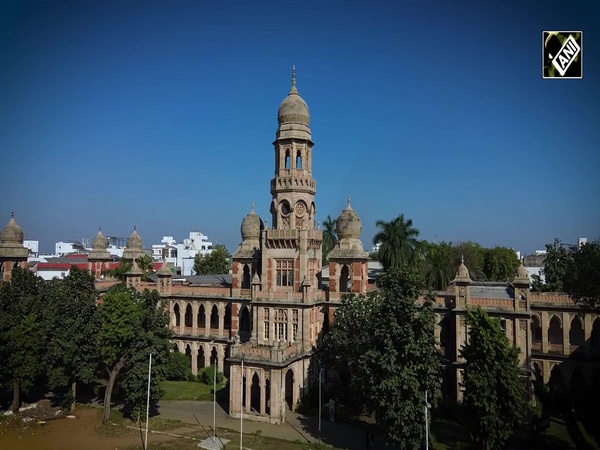Indonesia's capital shift to Nusantara reflects its growing strategic, economic power projection ambitions
Nov 05, 2022

Jakarta [Indonesia], November 5 : The shifting of Indonesia's capital from Jakarta to Nusantara is not only about the country's efforts to escape floods and crowds, but it also has economic and geopolitical ramifications.
The Interpreter, published by The Lowy Institute in its report said that the capital shift reflects the country's growing strategic and economic power projection ambitions.
Nusantara (East Kalimantan), which in Bahasa Indonesia means archipelago, is an interesting choice for the new capital.
It has been argued that the relocation is driven by geographic factors, namely its position in the middle of the Indonesian archipelago as well as it being an area free of disasters that often hit Indonesia, whether earthquakes, volcanic eruptions or tsunamis, reported The Interpreter.
Moreover, shifting its capital to East Kalimantan will position Indonesia's locus closer to areas of most interest, namely the Celebes Sea, Arafura Sea, and the Pacific Ocean.
It is no secret that Indonesia aims to position itself as a dynamic Indo-Pacific power exploiting its formidable centrally located position. Indonesia's vision for a "Global Maritime Fulcrum" and its part in shaping the ASEAN Outlook on the Indo-Pacific are testament to its desire to play that role, reported The Interpreter.
Taken together with developments Indonesia is undertaking on and around Natuna Island, its objective to be a maritime player is clear to see.
Additionally, being located along the Straits of Makassar, which is being positioned as an alternative shipping lane to the very busy Straits of Malacca, the maritime salience of this move - both from strategic and connectivity parameters - cannot be overstated, reported The Interpreter.
As a nation, Indonesia has changed its capital three times, from Batavia (Jakarta), Bandung, and Yogyakarta to Bukittinggi, back to Jakarta, and finally to Nusantara.
The plan to relocate the seat of Indonesia's government was announced by President Joko Widodo in 2019 and this year the Indonesian parliament passed a law enabling the proposed relocation.
The decision to move the capital to Nusantara was taken as Jakarta is saturated - both in a population sense, and more so by regular floods.
This will encourage the growth of new businesses to meet what is expected to be a growing demand for goods and services, reported The Interpreter.
The economic impact is not expected to be confined to just the Indonesian side. Opportunities for enterprising businesses from three immediate neighbours in the vicinity - Brunei, Malaysia and the Philippines - will surely abound.
Hampered by its distance from key markets and a national cabotage policy (transport of goods or passengers between two ports/places within the same country by a foreign shipping/transport operator) that many local players blame for a lack of industrial development, Nusantara offers Sabah a potentially huge market much closer to home.
Indonesia's move will certainly require arrangements to protect its new capital. It is no secret that there are security concerns in the nearby Celebes and Sulu Seas. This area has long been a hive of piracy, smuggling and kidnapping for ransom, reported The Interpreter.
This is one of the reasons why Indonesia, Malaysia and the Philippines had established the Trilateral Cooperation Agreement (TCA) in 2017.
Certainly, the enhanced security that this entails will also facilitate the efforts by Malaysia and the Philippines to address their own domestic security concerns, which often overlap (for instance, smuggling, illegal immigration and the Abu Sayyaf group).
These developments in the security domain can have the effect of creating a secure area that can indirectly contribute to further economic integration and growth, reported The Interpreter.
This may see a new impetus in the Brunei-Indonesia-Malaysia-Philippines East ASEAN Growth Area (BIMP-EAGA). This initiative was established in 1994 but has continued to be hampered by its small market, lack of physical connectivity, and security concerns.
While there are security and economic benefits to be derived from the shifting of the capital, the act itself hints at the emergence of a more confident Indonesia.




















